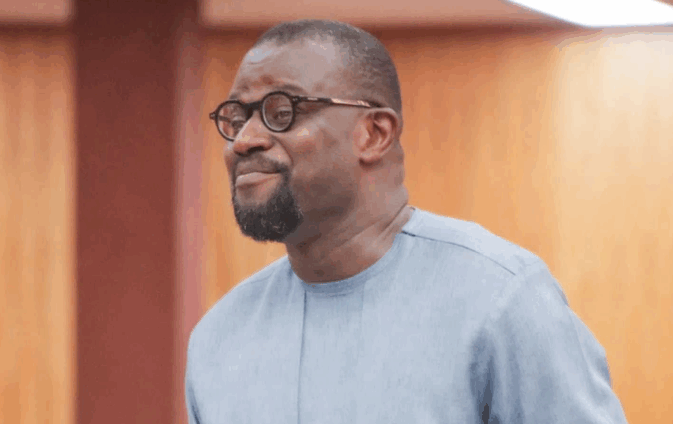The arrest and detention of Ashanti Regional New Patriotic Party (NPP) Chairman, Bernard Antwi Boasiako, popularly known as Wontumi, by the Economic and Organised Crime Office (EOCO) has ignited a firestorm of controversy, with Minority Chief Whip Frank Annoh-Dompreh leading the charge against what he terms a politically motivated persecution. Annoh-Dompreh has accused EOCO of acting with impunity, targeting Wontumi as part of a larger scheme to destabilize the NPP within its stronghold of the Ashanti Region. He alleges that the actions taken against Wontumi are not based on legitimate legal grounds but are rather a calculated attempt to weaken the party’s base by targeting its regional leader. This narrative paints a picture of a state institution being used as a political tool to suppress opposition, a serious allegation with potentially damaging implications for Ghana’s democratic processes.
The Minority Chief Whip’s critique extends beyond EOCO, reaching former President John Dramani Mahama, whom he accuses of complicit silence in the face of this alleged abuse of power. Annoh-Dompreh questions Mahama’s inaction, portraying it as tacit approval of EOCO’s conduct and the perceived targeting of Wontumi. This expands the scope of the controversy beyond a simple arrest and detention, framing it within a larger political power struggle between the ruling and opposition parties. The implication is that Mahama, as a leader of the opposition, has a responsibility to speak out against perceived injustices, even if they are directed at political rivals. His silence, according to Annoh-Dompreh, is a betrayal of this responsibility.
Adding to the gravity of the situation, Annoh-Dompreh reveals that Wontumi has embarked on a hunger strike while in EOCO custody, raising concerns about his health and wellbeing. The lack of clear information regarding Wontumi’s medical condition, the treatment he is receiving, and the overall handling of his health situation further fuels the narrative of mistreatment and disregard for his basic rights. This development amplifies the humanitarian aspect of the controversy, shifting the focus from purely political maneuvering to the potential endangerment of an individual’s life. The hunger strike, a powerful form of protest, underscores the severity of Wontumi’s perceived grievances and adds a layer of urgency to the calls for his release or, at the very least, for transparency regarding his health status.
Annoh-Dompreh’s accusations escalate further as he alleges that EOCO officials are obstructing Wontumi’s access to legal counsel, a fundamental right enshrined in legal principles. He draws a parallel to even the most serious criminal cases, such as murder, where suspects are routinely granted access to their lawyers. This denial of legal representation, according to Annoh-Dompreh, solidifies his claim of political persecution and underscores the perceived disregard for due process. By highlighting this denial of a fundamental right, Annoh-Dompreh seeks to portray EOCO’s actions as not just politically motivated, but also legally questionable, potentially undermining the institution’s credibility and the integrity of the legal process itself.
Furthermore, Annoh-Dompreh points his finger at Deputy Attorney General Justice Srem-Sai, accusing him of prejudicing the case by publicly alleging Wontumi’s involvement in fraud, money laundering, and causing financial loss to the state. He questions the timing and nature of these public pronouncements, suggesting that they are designed to sway public opinion and potentially influence the legal proceedings. This accusation raises concerns about the impartiality of the legal process and the potential for political interference in what should be an independent investigation. Annoh-Dompreh challenges the Deputy AG to substantiate these allegations in court rather than resorting to public pronouncements, which he perceives as an attempt to preemptively convict Wontumi in the court of public opinion.
Finally, Annoh-Dompreh warns of potential repercussions if the perceived injustice against Wontumi continues, hinting at renewed protests by the Minority. He recalls a previous march to EOCO and suggests that similar actions may be taken if the situation does not improve. This serves as a direct message to the authorities, signaling that the Minority is prepared to escalate its actions and mobilize public support in defense of Wontumi. This potential for further protests adds another layer of complexity to the situation, raising the specter of public unrest and further polarization within the political landscape. The invocation of past protests serves as a reminder of the potential for escalation and the importance of addressing the concerns raised by the Minority to prevent further unrest.


